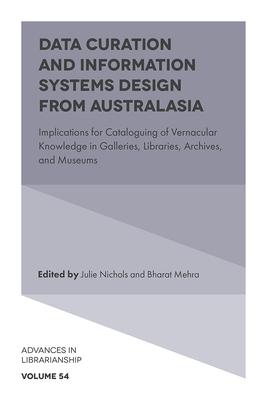The need for decolonizing cultural institutions and their mismanagement practices in galleries, libraries, archives, and museums, of First Nations peoples' materials and knowledge has been widely recognised. However, this has not translated into an information systems design, nor a complementary solution representing an alternative world view. Instead, the entrenched legacy of the neoliberal sector's curatorial and archival practices remains intact, and their authority stays unquestioned. This edited book's unique viewpoint is its exploration of projects that investigate innovative data curation strategies through the thematics of visual representation of infrastructure, and bodies of knowledge.
Authors from Indigenous and non-Indigenous backgrounds underpin their chapters with a social justice approach to investigations around different knowledge systems. They powerfully challenge entrenched assumptions of knowledge capture and dissemination of the western academy. An emphasis on visualisations of cultural heritage materials across a variety of case studies using technologies that range from augmented and virtual realities to mixed reality aims to raise questions for debate in the way Indigenous data is collected, managed, curated, governed, and represented and by whom.
